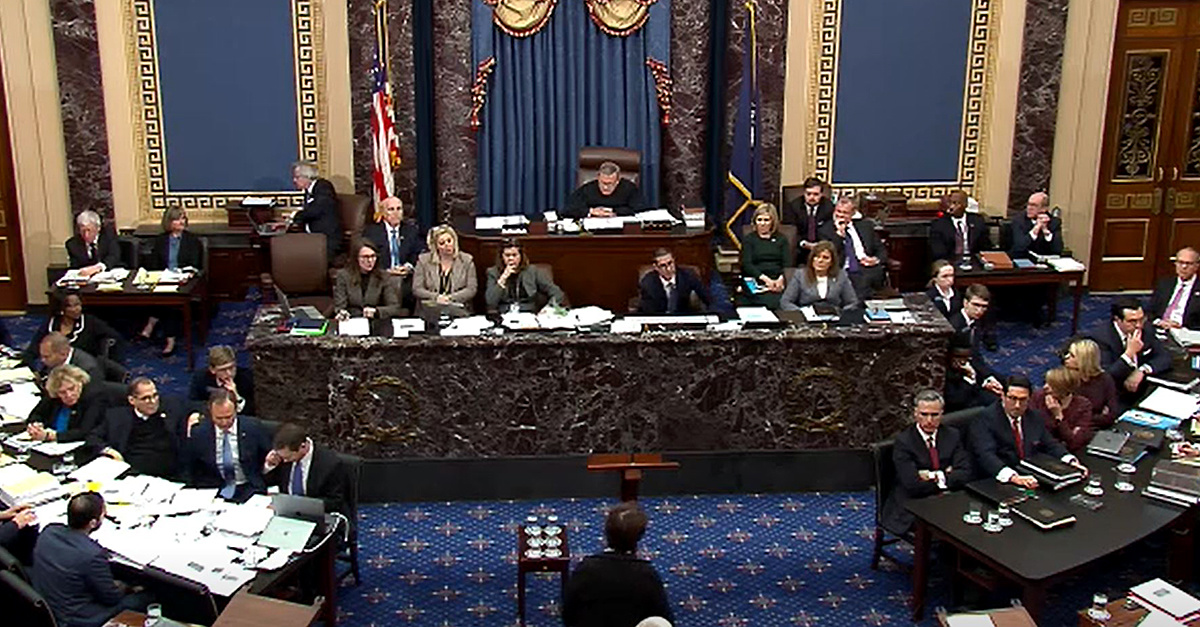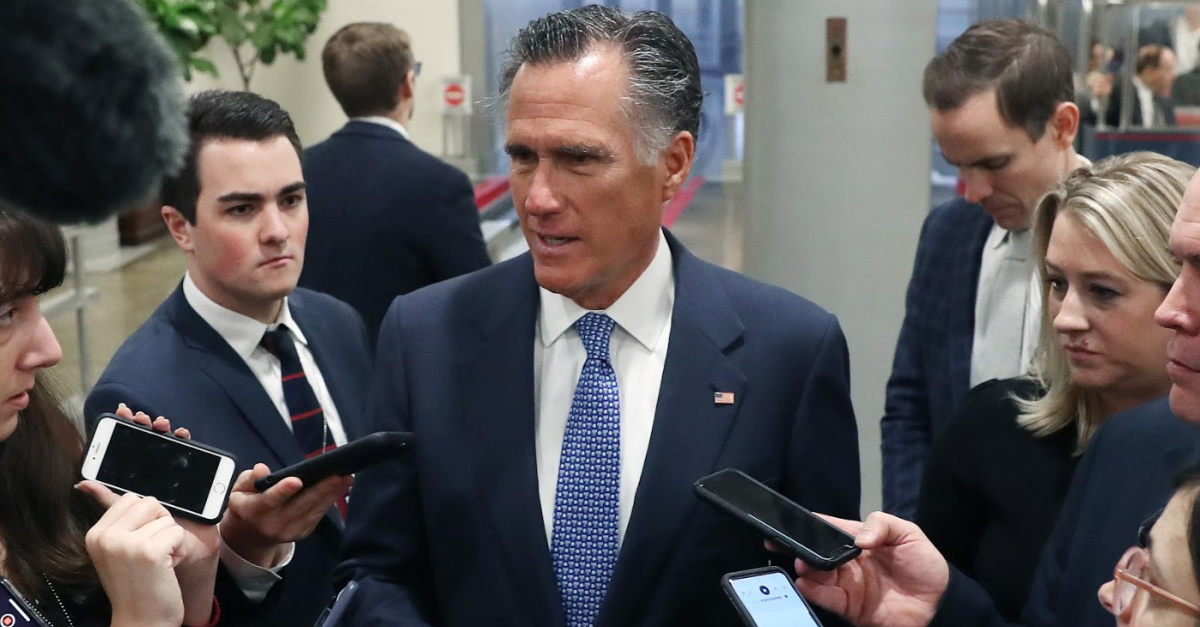5 Key Takeaways from Trump’s Impeachment Trial, Day 1

The first day of President Trump’s impeachment trial concluded Tuesday after a 12-hour marathon session, with senators approving rules for the trial after several tense exchanges over the specifics.
Democratic House managers will begin presenting their case Wednesday.
Here are five key takeaways from the first day:
Photo courtesy: ©Getty Images/Handout

1. Republicans Point to Clinton Precedent
Senate Majority Leader Mitch McConnell (Ky.), not wanting the trial to drag out, referenced the “Clinton precedent” and the 24 hours given to each side to present their case during the 1998-99 trial of President Bill Clinton. Each side in the trial of President Trump, he said, will be given 24 hours, too.
“Fair is fair,” McConnell said, adding that his proposal for trial rules was “evenhanded and tracks closely with past precedents that were established unanimously.”
Unlike in the House, he argued, Trump’s team will receive a “level playing field” in the Senate.
Attorney Jay Sekulow, a member of Trump’s legal team, asserted the trial was politically driven.
“Why are we here?” he asked. “Are we hear because of a phone call? Or are we here before this great body because since the president was sworn into office, there was a desire to see him removed?”
Photo courtesy: ©Getty Images/Drew Angerer/Staff

2. Democrats Get a Concession
McConnell’s original plan was to give Democratic House prosecutors two days to make their case – meaning the 24 hours would be split in half and result in two, 12-hour sessions. But after complaints from his own caucus, he agreed to give Democrats three days to make their cases. That will result in three eight-hour days.
Republican Sens. Susan Collins (Maine) and Rob Portman (Ohio) urged McConnell to make the change.
“Senator Collins and others raised concerns about the 24 hours of opening statements in 2 days and the admission of the House transcript in the record,” Annie Clark, a spokeswoman for Collins, said in a statement to The Hill.
“Her position has been that the trial should follow the Clinton model as much as possible. She thinks these changes are a significant improvement.”
Photo courtesy: ©Getty Images/Win McNamee/Staff

3. Senators Delay Question on Witnesses
Republicans defeated Democratic amendments to call specific witnesses – such as former national security adviser John Bolton – but delayed the key question of whether to subpoena any witnesses at all. That vote apparently will take place later in the trial.
Democrats want to call witnesses to testify against Trump
“The public is understanding how unfair Senator McConnell’s trial rules are and Republican Senators are beginning to tell him to change them. The real test will be if they pressure Senator McConnell to allow witnesses and documents,” Minority Leader Charles “Chuck” Schumer (D-N.Y.) said in a statement.
Photo courtesy: ©Getty Images/Alex Wong/Staff

4. All Eyes Are on 4 Senators
With Republicans holding 53 seats in the 100-seat chamber, Democrats need only four defections to win key votes. (Although 67 votes are needed to convict, it requires only a simple majority to change the rules.)
Democrats are eyeing the votes of at least four Republican senators they hope to persuade: Collins, Lisa Murkowski (Alaska), Lamar Alexander (Tenn.) and Mitt Romney (Utah).
Although all four voted with the GOP Tuesday, that might not be the case when the issue of witnesses against arises.
Collins said Tuesday, “I tend to believe having additional information would be helpful. It is likely that I would support a motion to call witnesses at that point in the trial just as I did in 1999.”
Photo courtesy: ©Getty Images/Mark Wilson/Staff

5. Roberts Tries to Keep it Civil
Chief Justice John Roberts, who has a constitutional duty to preside over the trial, chided House Democrats and Trump’s legal team for what he viewed as their lack of decorum.
A House prosecutor, Rep. Jerry Nadler, had said he saw “senators voting for a cover-up,” while a Trump attorney responded, “The only one who should be embarrassed, Mr. Nadler, is you.”
“I think it is appropriate for me to admonish both the House managers and the president’s counsel in equal terms to remember that they are addressing the world’s greatest deliberative body,” Roberts said. “One reason it has earned that title is because its members avoid speaking in a manner and using language that is not conducive to civil discourse.”
Michael Foust is a freelance writer. Visit his blog, MichaelFoust.com.
Photo courtesy: ©Getty Images/Drew Angerer/Staff





Comments are closed.